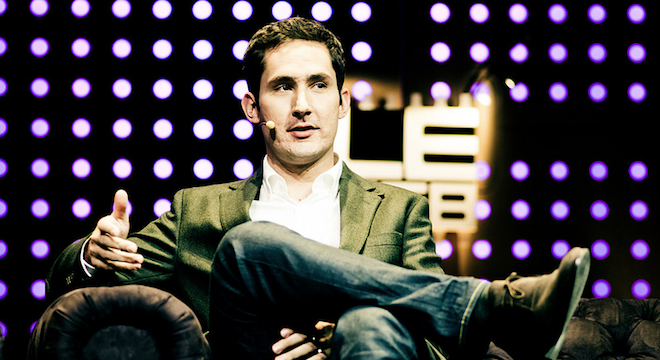After suffering a loud user backlash on Tuesday, the popular photo-sharing application Instagram backtracked from new policy changes it announced a day earlier that seemed to give it and parent company Facebook the latitude to repurpose user photos and information for advertising purposes.
“To be clear: it is not our intention to sell your photos,” wrote Instagram CEO Kevin Systrom in a conciliatory blog post published late Tuesday, later adding: “The language we proposed also raised question about whether your photos can be part of an advertisement. We do not have plans for anything like this and because of that we’re going to remove the language that raised the question.”
But the new changes Instagram introduced for its terms of service and privacy policy — which are still set to go into effect January 16, 2013 — did seem to indicate that Instagram could have taken user photos and content for advertising purposes, according to copyright law experts who spoke to TPM.
In the new terms proposed Monday, “Instagram claims it can sell to other parties the right to use your content (including photos) and not provide you with any compensation,” wrote Greg Lastowka, an intellectual property law professor at Rutgers, in an email to TPM.
“They say they are not claiming they ‘own’ user content, but the difference between ownership and the right to sell a user’s content to others without paying the user any compensation, while a real legal difference, is pretty subtle in practice,” Lastwoka continued.
As for Instagram’s claim that it doesn’t have an “intention to sell” user photos, that too was a matter of dispute in the original terms, according to Jessica Litman, a professor of copyright law at the University of Michigan.
“Instagram is saying that users still own their content but they are granting Instagram a non-exclusive right to do pretty much anything it wants to with it, including sell, either with or without (at Instagram’s discretion) your image and username,” Litman wrote to TPM via email.
The two copyright law experts also told TPM that the threats from users to abandon Instagram was perhaps the most reasonable response for those worried about the privacy and integrity of their photos, but may not result in any meaningful change of how Instagram, its parent company Facebook or any other companies treat user generated content going forward.
“Facebook, Instagram’s new parent, has a long history of gradually changing its contractual terms and business practices to obtain greater leverage over user-generated content,” Lastowka wrote. “So perhaps we should have seen this coming when Facebook acquired Instagram….I think it is clear that while some people have dropped their Facebook accounts to protest changed terms, the majority of people don’t seem to pay much attention to TOS [terms of service] provisions. So while I think this public outcry about Instagram is healthy, I doubt it will change the larger ecosystem of TOS provisions.”
To Lastowka’s point, Facebook in November underwent a very similar cycle of outcry and concern from users, followed by a company-issued clarification, when it unveiled proposed new changes to its terms of service and privacy policy.
In that case, users who were worried about their content ownership rights on Facebook took to posting a misinformed variation of a note as a status update, claiming ownership of all their Facebook content and requesting “written consent” before anyone else, including Facebook, could repurpose it. Facebook eventually issued a “Fact Check” in an attempt to push back against the misinformation and the concerns.
But in both cases, the concerns vocalized by users betrayed real fundamental uncertainty over how large social networking and Web companies are treating user information willingly forfeited to them.
Whatever Instagram changes its terms of service and privacy policy to next, users remain at the whim of the company. Those who no longer wish to be subject to these changes have only one real option: leave.
“Personally, I’d advise any friends or relatives to use a different photo hosting solution,” Litman wrote.
However, Litman noted that a “groundswell of protest” from users leaving or threatening to leave also proved effective in at one previous, quite unrelated case this year: When Netflix last summer unveiled plans to break its DVD-by-mail portion of its service into a completely separate company called “Qwikster,” quickly rescinding them over a massive user backlash.






